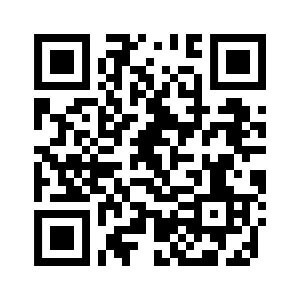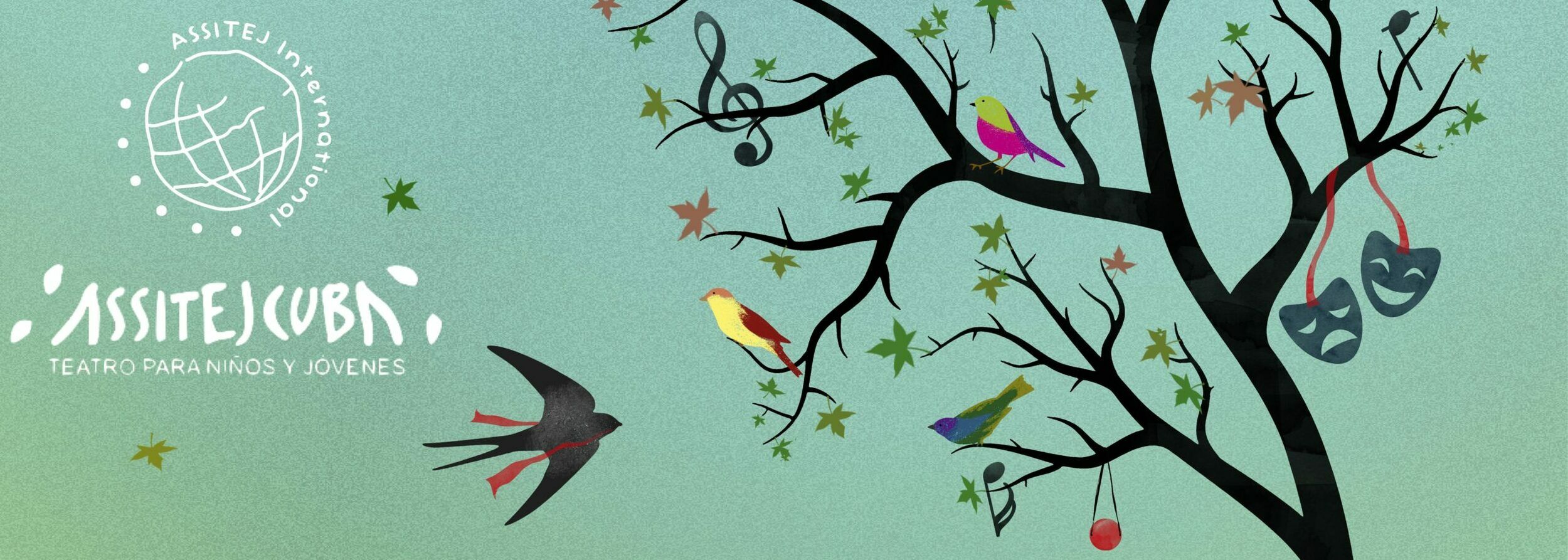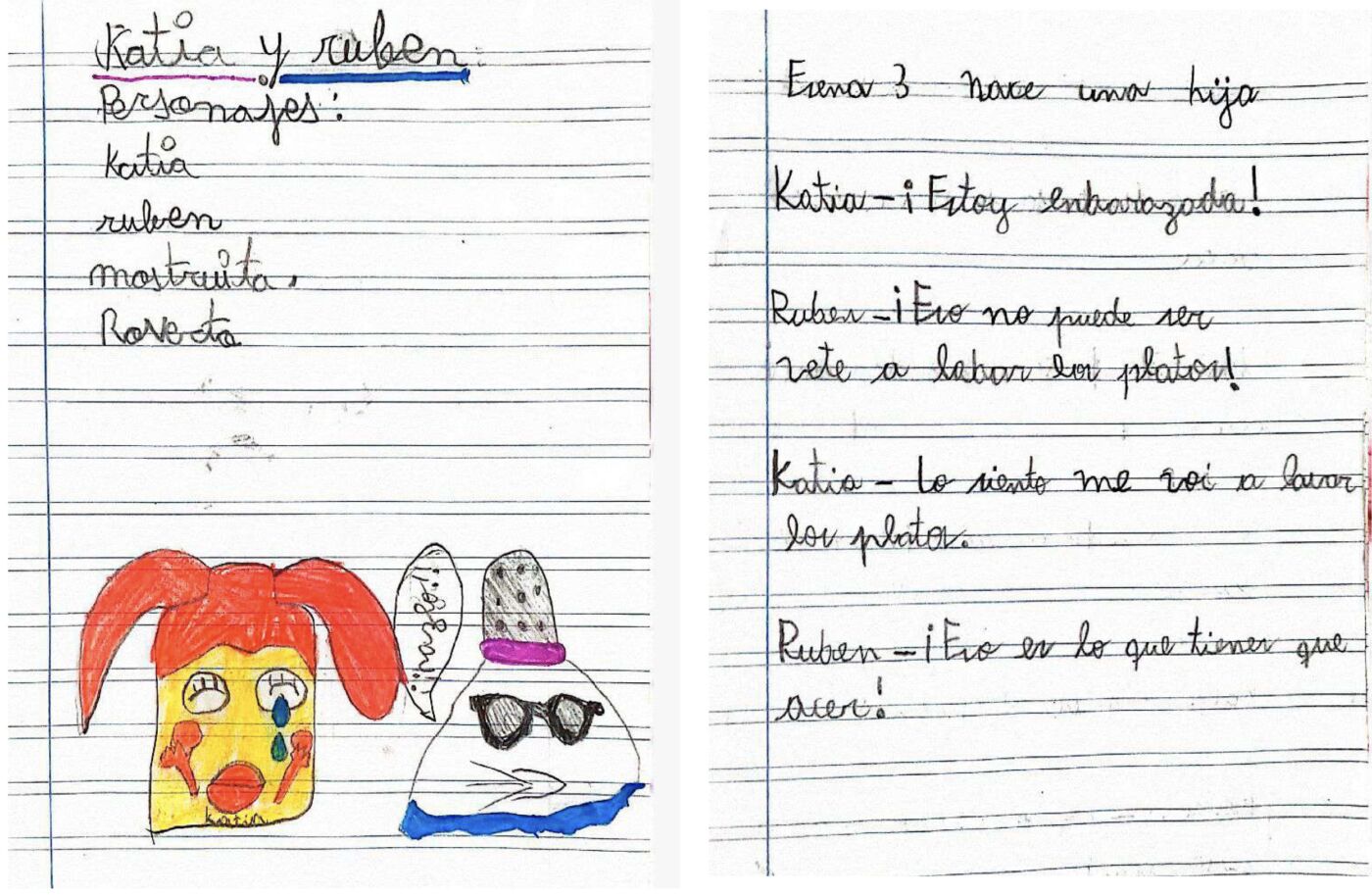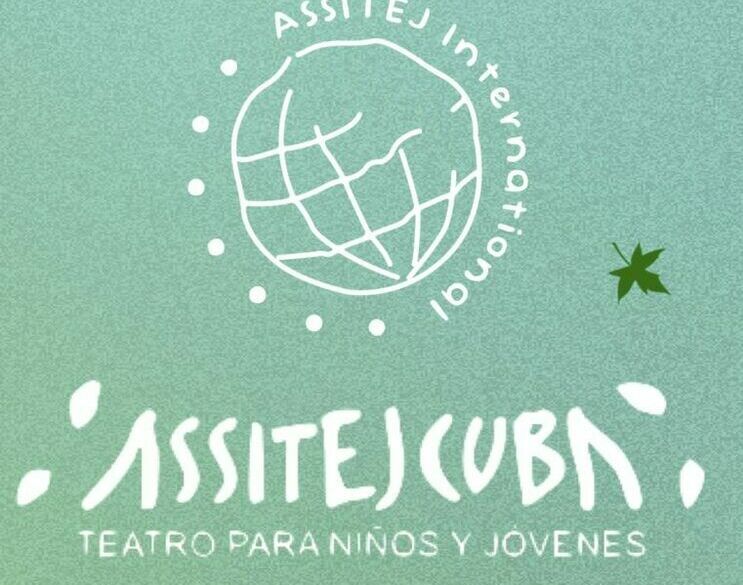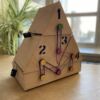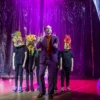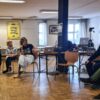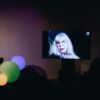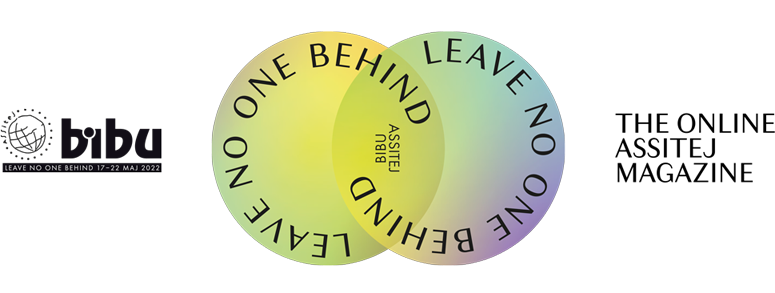Carmen Gloria Sánchez-Duque
Growing understandings in the global Theatre for Young Audiences sector of practices of adult child For teachers today, one of the biggest challenges is to motivate their students to read, write and reflect, valuing critical and social thinking as a deliberate and self-controlled intellectual process that seeks for students to reach reasonable judgment, so as to be able to ask questions and answers about a problem, which will only be likely to be discerned according to its relevant criteria and patterns. To this end, many teachers seek to address curricular content, such as literary genres in Primary Education, proposing the approach of social issues together with their students, in order to motivate them to research, analyze and write about a social phenomenon that is of interest. their interest, where the student can assume a critical position before the events, putting decision-making into practice and then, for example, transforming their reflections into: a poem, a story or a play (Pagès, 1998).
Feminist pedagogy thinks about education in co-educational terms, providing theoretical and practical foundations to make gender, social and educational inequalities visible, and in this way become aware of how to build a fair citizenship, associated with the principle of equal opportunities for all. . and all, at the political, economic and social level (Bejarano et al., 2019). Talking about feminism in Primary Education allows us to generate educational projects that are based on the principles of freedom and equality, becoming critically aware of the social inequalities that still exist, and therefore identifying gender among boys and girls is taking responsibility for both men and women. women of the transformation of those unfair social phenomena that occur, making us responsible at an early age for our social behaviors, favoring autonomy, overcoming gender stereotypes and any limiting conditions, promoting the empowerment of students and their ability to discern and reflect, granting them a decision-making that links the affective in social participation and collaborative work.
When we considered developing a dramaturgical creation project in Primary Education, we sustained an authentic act of freedom of expression, which is based on the intense need for students to communicate the worlds that they have been exploring and imagining (Mijares, 2015). . Although we began by analyzing particular social issues such as: inequality, feminism or gender violence, the most important thing that happened here was “the literary journey”, the rush to take “a leap into the void, supported by classmates”, the which together they ventured to explore the same topic in question from different perspectives, which allowed them to use their intuition to generate stories and discover their creative instinct, establishing loving and respectful processes of dialogue.
As an artist and scholar whose work centres on a specialisation in working with children and youne In the development of the project, body drama exercises were used with the boys and girls, before putting their dramaturgical proposals on paper. The exercises consisted of making the body, voice and emotions of the students available to improvise dramatic scenes that they had already planned, with the purpose of making an organic review of their proposals before writing them in a final text. In this way, each group was able to open the range of possibilities that an action and its resolution has, through the execution of dramatizations that served as a prelude to defining what they really wanted to tell. These exercises are very fruitful for developing literary intuition, being able to clearly observe what was missing or left over from a scene before writing it, interfering in the elaboration of collaborative dramaturgical creation (Lucas, 2020).
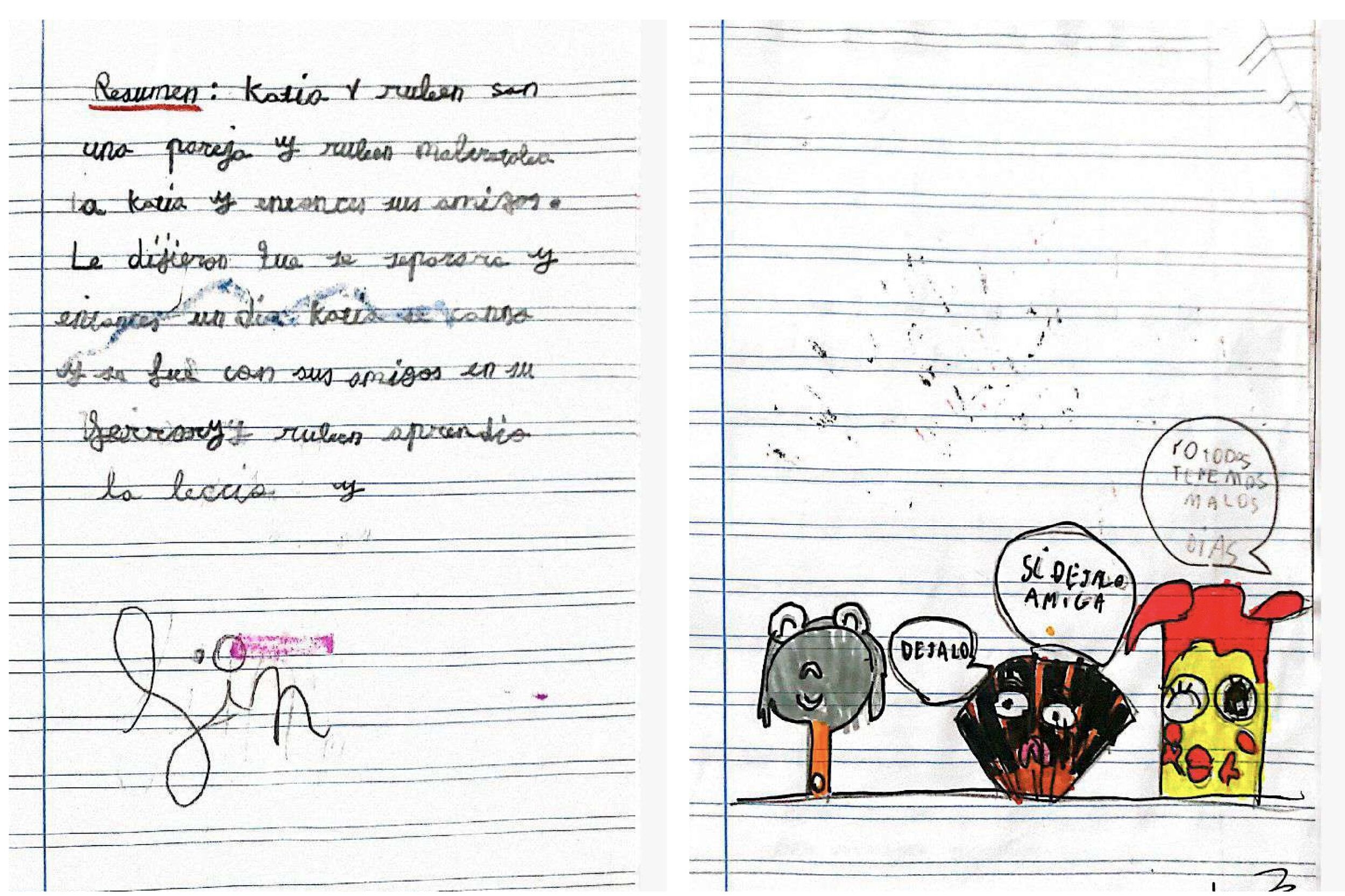
Author Biography
These intertwined and entangled creative methods include creative approaches to story-sharing, non-Theater Researcher, director of the PERROBUFO Company (Chile), since 2012 she has been working with boarding boys and girls and vulnerable schools. His line of research has generated numerous publications.
Reference
Luke. E. (2020). Methodological proposal, theoretical principles and approaches for the acting dramaturgical creation process. Revista do Pósgraduação en Artes program da EBA/UFMG, 10 (9) p.101-125. https://periodicos.ufmg.br/index.php/revistapos/article/view/21542
Adult collaborators must be committed to practices that comprehend children’s rights and respect Mijares, E. (2015). Research to create. Unavoidable literary process. In Theory and dramatic creation. Research as a creative process. (7-15). Durango: Empty Space-UJED.
Pages, J. (1998). The formation of social thought. In P. Benejam and J. Pagès, J. (Coords.), Teaching and learning Social Sciences, Geography and History in Secondary Education (pp. 152-164). Barcelona: ICE/Horsori.
Encarnar la visión de los estudiantes de Primaria mediante la creación dramatúrgica como estrategia educativa para la reflexión sobre cuestiones sociales
Para los docentes en la actualidad, uno de los mayores desafíos es motivar a sus estudiantes a la lectura, la escritura y la reflexión, valorando el pensamiento crítico y social como un proceso intelectual deliberado y autocontrolado que busca que los estudiantes alcancen un juicio razonable, de modo de poder auto formularse preguntas y respuestas sobre una problemática, la cual solo será probable de discernir según sus criterios y patrones relevantes. Para ello, muchos docentes buscan abordar contenidos curriculares, como el de géneros literarios en la Educación Primaria, planteando el abordaje de cuestiones sociales junto a sus estudiantes, de modo de poder motivarles a la investigación, análisis y escritura sobre un fenómeno social que sea de su interés, donde el alumno pueda asumir una posición crítica antes los hechos, poniendo en práctica la toma de decisiones para luego, por ejemplo, transformar sus reflexiones en: un poema, un cuento o una pieza teatral (Pagès, 1998).
La pedagogía feminista piensa la educación en términos coeducativos, aportando fundamentación teórica y práctica para visibilizar las desigualdades de género, sociales y educativas, y de este modo ir tomando conciencia en como ir construyendo una ciudadanía justa, asociada al principio de igualdad de oportunidades para todos y todas, a nivel político, económico y social. Hablar de feminismo en la Educación Primaria nos permite generar proyectos educativos que se fundan desde los principios de libertad e igualdad, tomando conciencia crítica sobre las desigualdades sociales existentes aún, y por ello identificar el género entre los niños y niñas, es responsabilizarnos tanto hombres como mujeres de la transformación de aquellos fenómenos sociales injustos que acontecen, haciéndonos a temprana edad responsables de nuestras conductas sociales, favoreciendo la autonomía, superando estereotipos de género y cualquier condicionante limitante, impulsando el empoderamiento de los estudiantes y su capacidad de discernir y reflexionar, otorgándoles una toma de decisiones que vincula lo afectivo en la participación social y el trabajo colaborativo.
Al plantearnos desarrollar un proyecto de creación dramatúrgica en la Educación Primaria, nos sostuvo un acto autentico de libertad de expresión, que parte de la intensa necesidad de comunicar por parte de los estudiantes los mundos que se han ido explorando e imaginando (Mijares, 2015). Si bien comenzamos analizando cuestiones sociales particulares como: desigualdad, feminismo o violencia de género, lo más importante que aquí ha ocurrido fue “el viaje literario”, la premura de dar “un salto al vacío, sostenido por los compañeros de clase”, los cuales juntos se aventuraron a explorar desde diferentes miradas una misma temática en cuestión, que les permitió hacer uso de su intuición para ir generando relatos y descubrir su instinto creador, estableciendo amorosos y respetuosos procesos de interlocución.
En el desarrollo del proyecto se utilizaron ejercicios de dramaturgia corporal junto a los niños y niñas, antes de plasmar en el papel sus propuestas dramatúrgicas. Los ejercicios consistían en poner a disposición el cuerpo, voz y emociones de los estudiantes para improvisar escenas dramáticas que estos ya tenían previstas, con el propósito de hacer una revisión orgánica de sus propuestas antes de escribirlas en un texto final. De este modo, cada grupo fue capaz de abrir el abanico de posibilidades que tiene una acción y su resolución, mediante la ejecución de dramatizaciones que les sirvieron de antesala para definir lo que realmente querían contar. Siendo estos ejercicios muy fructíferos para desarrollar la intuición literaria, pudiendo observar claramente lo que faltaba o sobraba de una escena antes de escribirla, interfiriendo en la elaboración de la creación dramatúrgica colaborativa (Lucas, 2020).
Biografía del Autor
Investigadora Teatral, directora de la Compañía PERROBUFO (Chile), desde el año 2012 trabaja junto a niños y niñas internos y colegios vulnerados. Su línea de investigación ha generado numerosas publicaciones.
Referencia
Lucas. E. (2020). Propuesta metodológica, principios teóricos y enfoques para el proceso de creación dramatúrgica actoral. Revista do programa de Pós- graduação en Artes da EBA/UFMG, 10 (9) p.101-125. https://periodicos.ufmg.br/index.php/revistapos/article/view/21542
Mijares, E. (2015). Investigar para crear. Insoslayable proceso literario. En Teoría y creación dramática. La investigación como proceso creativo. (7-15). Durango: Espacio Vacío-UJED.
Pagès, J. (1998). La formación del pensamiento social. En P. Benejam y J. Pagès, J. (Coords.), Enseñar y aprender Ciencias Sociales, Geografía e Historia en la Educación Secundaria (pp. 152-164). Barcelona: ICE/Horsori.
